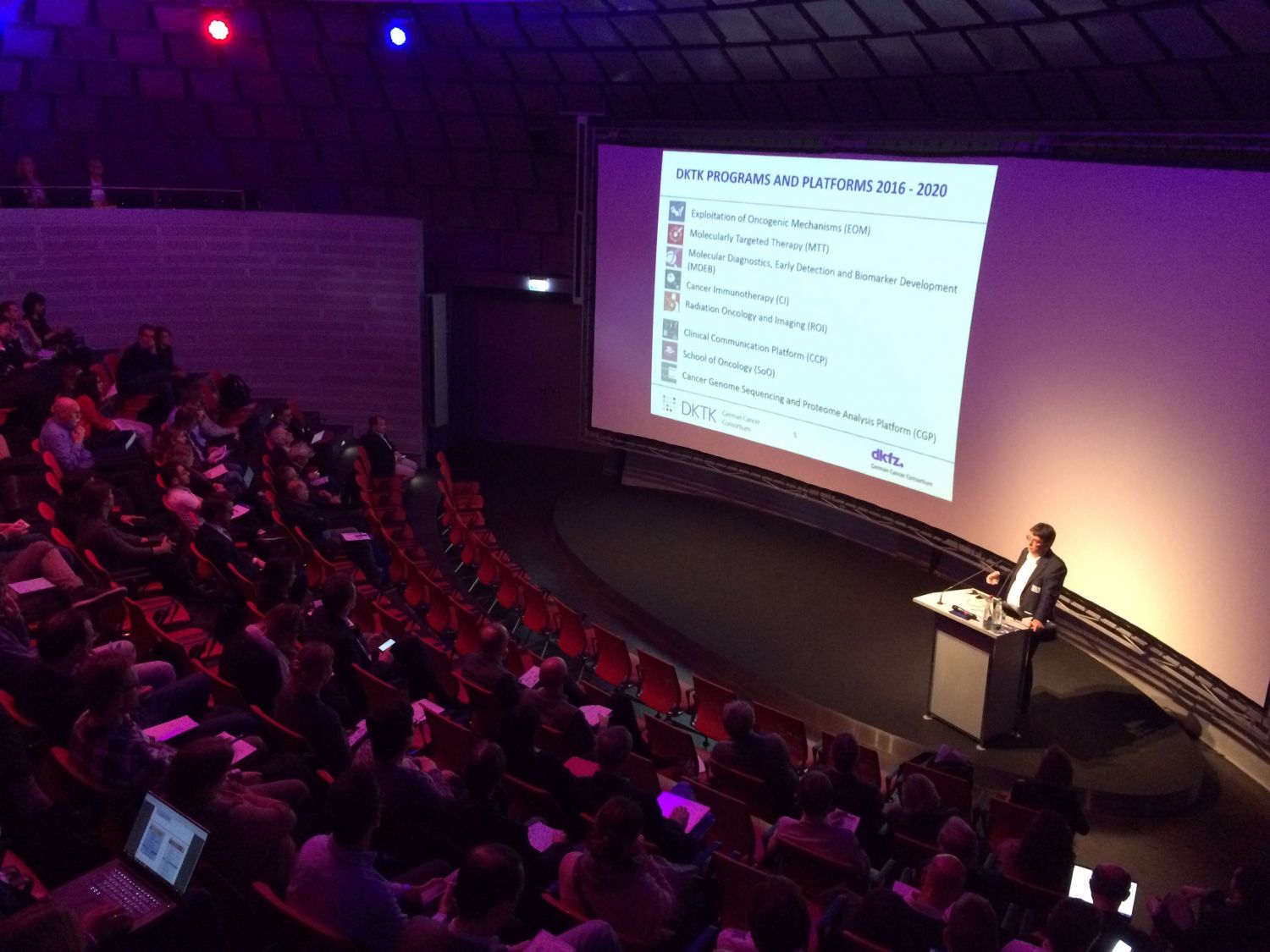10/10/2017
Print PageDKTK Program Retreat 2017: Five programs – one aim
The DKTK is tackling the biggest challenges of modern cancer medicine through its five research programs: Cancer Immunotherapy, Molecularly Targeted Therapy, Molecular Diagnostics, Early Detection and Biomarker Development, Radiation Oncology and Imaging and Exploitation of Oncogenic Mechanisms.
In his welcoming speech, Michael Baumann, Scientific Director of the German Cancer Research Center (DKFZ) and Spokesman for the German Cancer Consortium (DKTK), praised the successful appraisal by the German Council of Science and Humanities (Wissenschaftsrat) and talked about the key aims of the current research period that runs to 2020. Baumann emphasized how important it is to include genetic and proteomic analysis of tumors in cutting-edge clinical applications because of the great genetic diversity in cancer. Another important aim, he said, was to initiate patient cohorts and additional multi-center clinical trials to promote the transfer of successful basic research into clinical practice, where it can benefit patients.
Among other things, the event focused on crosslinking program and platform content. In the ‘cross-program sessions’ on the second day, the researchers presented the current collaborations in their fields. One example of cross-program cooperation is the further development of liquid biopsies for the early detection, molecular diagnostics and treatment response monitoring of cancer – an area that all the programs are involved in.
There was great interest in the advice session run by the Paul Ehrlich Institute, which provided information on the regulatory conditions and pitfalls associated with the approval of clinical trials and the development of biomarkers. In another workshop, the Clinical Communication Platform presented the ongoing trial of its bridgeheads – IT components that provide all the DKTK sites with pseudonymized clinical data.
It is the first time that the DKTK Program Retreat has taken this format. “The workshop character of the seminars is intended to facilitate a very targeted, intensive exchange of views,” says Dirk Nettelbeck, Scientific Coordinator within the DKTK. “We would like to extend our sincere thanks to all the researchers who helped with the content of this event in order to successfully advance the strategies of the research programs.”
